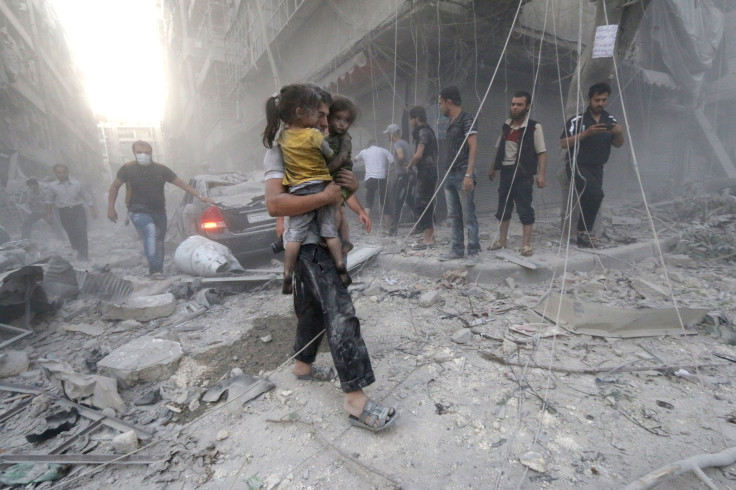Syria Peace Talks Update: Assad's Political Future To Be Focus Of Negotiations In New York

The political future of Syrian President Bashar Assad is set to be the main topic of debate Friday morning when world leaders meet in New York to hold Syria peace talks. The United States and Russia are spearheading the negotiations reportedly aimed at ending the Syrian conflict, which has claimed the lives of nearly 300,000 people and enabled the rise of the Islamic State group, also known as ISIS.
Despite widespread agreement that Assad has committed shocking war crimes in Syria, U.S. officials reportedly believe that bringing Assad to justice is a lower priority than ending the carnage in Syria as soon as possible. The U.S. and its allies have repeatedly insisted that Assad must leave office for the peace process to progress.
“I haven’t given up on the idea,” British Foreign Secretary Philip Hammond said in a recent interview, according to Politico. “If there’s justice in the world, Bashar Assad will end up in the Hague. Whether that’s going to happen is another question. The moral answer is to end the killing now.”
Among the issues slated to be discussed during the peace talks is which of the dozens of militias fighting in Syria should be deemed the Syrian opposition, and which should be considered terrorist organizations.
While Russia has agreed to push for talks to end the civil war in Syria, it dismisses most of the Syrian opposition as terrorists. It is also unclear if Moscow will agree to the departure of Assad in some transitional process, something that the opposition insists upon, according to the New York Times.
On Thursday, Iran's Foreign Minister Mohammad Javad Zarif said there "seems to be no agreement" on key issues, just hours before the upcoming international conference in New York. He told the Associated Press that Iran has seen "no lists we can agree upon" of Syrian opposition groups that should be included in peace negotiations, or of Syrian groups that should be considered terrorist organizations.
"Card-carrying members of al Qaeda do not satisfy the conditions that we set for members of the opposition," Zarif reportedly said, ruling out any affiliates of the extremist group. "The opposition should be serious, and it should be inclusive."
Zarif added that "we still don't know" if there will be any material progress in the talks.
The latest negotiations follow last month's meeting in Vienna where a peace plan was agreed upon by 20 nations and a January deadline set for the talks to begin between Assad and Syrian opposition groups.
© Copyright IBTimes 2025. All rights reserved.





















